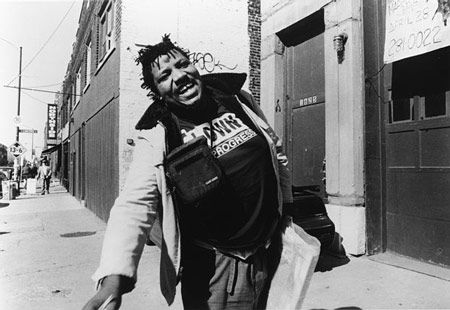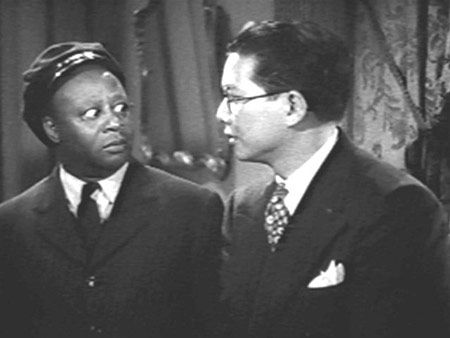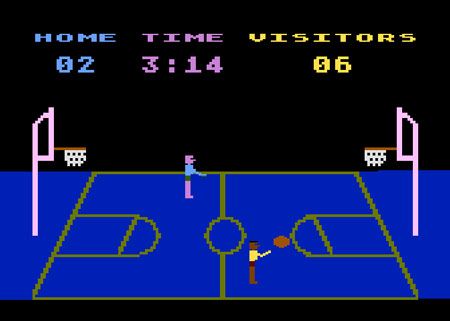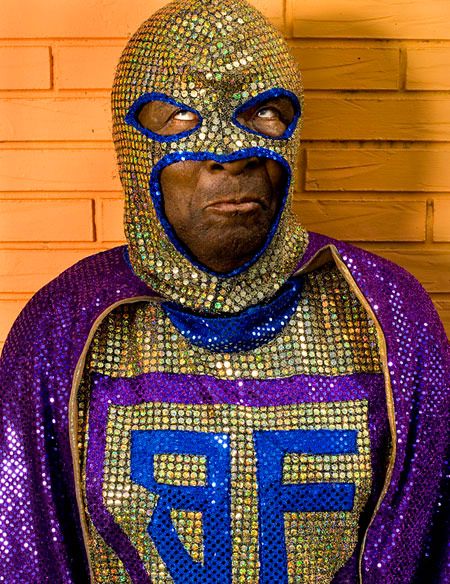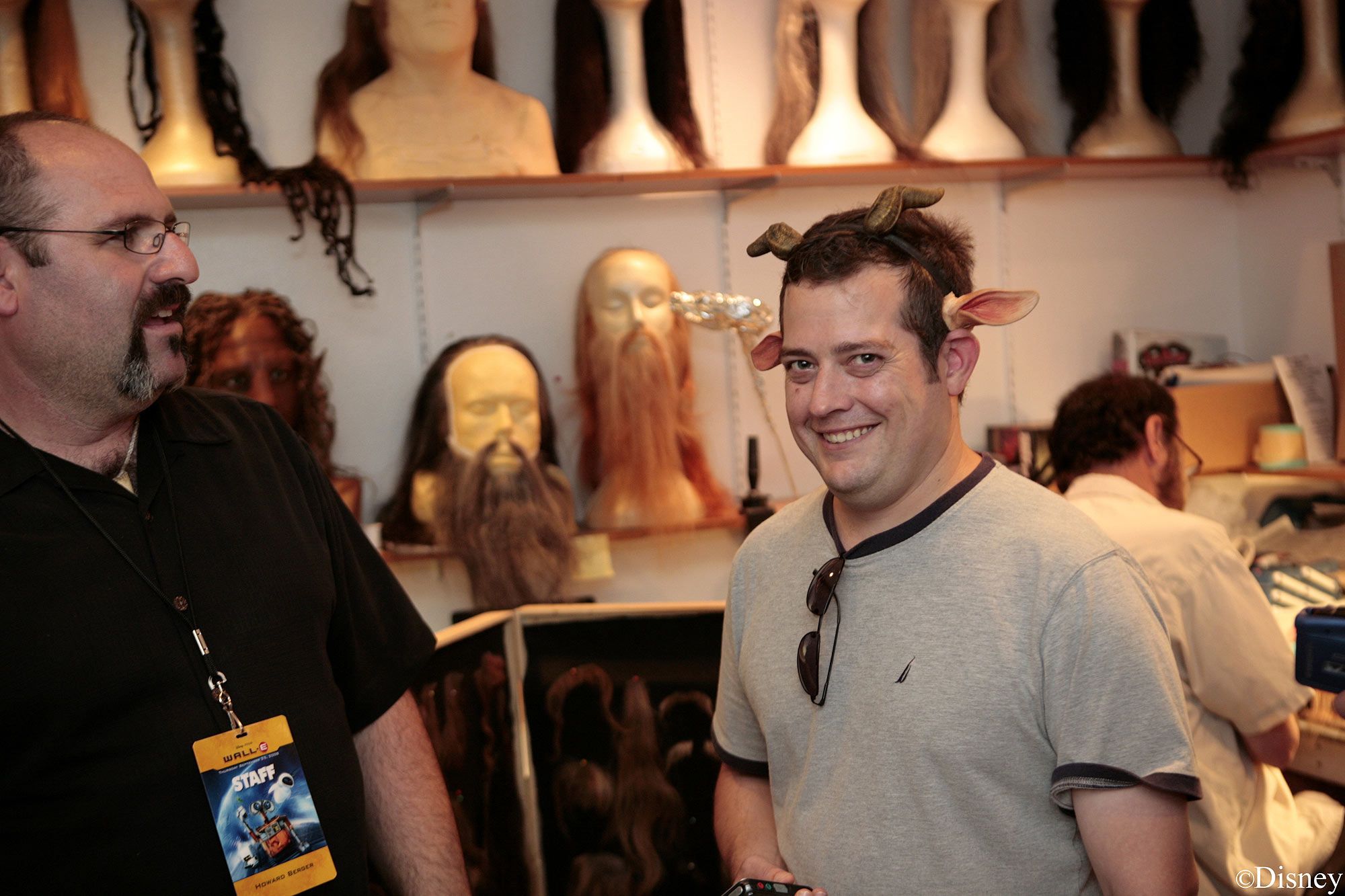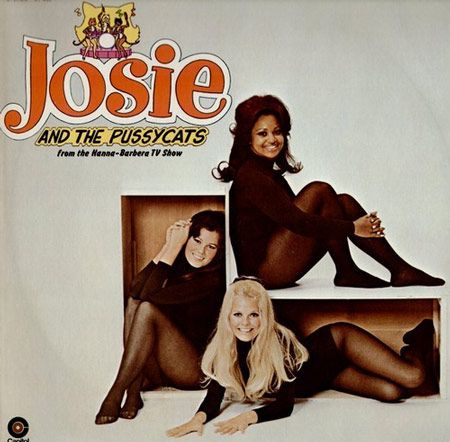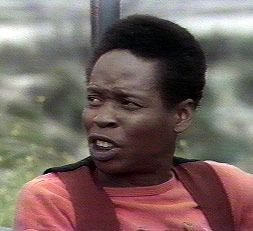Valentine's Day is over, and February has nearly ground to a halt. Sure, it would have been easy to dive deep into our own back catalogue of Whoop-doo! love classics for an over-stated list of must see video sweetheart serenades. But that would have been too easy. And there would have been a giant debate about the entries we, as a sovereign Whoo-doo! nation included. "Seriously, Brad Alan. How can you embrace Joe Versus the Volcano while leaving Lars and the Real Girl to linger in the dust?" Maybe because one is sold at Vons, and the other is a classic! That's why.
It's funny. Those that scream loudest around here seem to be gun-ho macho about the lastest action extravaganza, yet they're also quickest to call The Notebook one of the greatest cinematic love stories of all time. Denying them the pleasure of seeing that title in print, on any list, does my heart proud. What a bunch of pussies. The Notebook? Please. It's girl-crack, pure and simple. Valentine's Day is supposed to be about the love shared between two people. And any given film included on a list of top ten romance movies should be very personal to those visually indulging in the notion (i.e. it shouldn't be so one sided). Heck, maybe you and your significant other saw Slither on your first date. And you want to reenact the handjob as a way of rekindling that ol' flame. Who am I to create such a personal list for you to tear into and tear apart, and enjoy?
That's why I've decided to dedicate this week's Boos! and Whoop-doos! To Black History Month instead. It has come to my immediate attention that those of you waned on Home Alone and TMNT (open dig) aren't aware of certain black personages of historical entertainment significance. This is my list of unsung heroes. Their cultural impact is undeniable. They have brought a lot of joy into my life. And they've taught me a lesson or two about making it in this world. They are great men and women, one and all. Even if some have faltered on their way to godliness. We certainly shouldn't worship them as unearthly deities. Instead, we should raise our cup and simply say, "Thank you for making this world a little brighter." Here they are in no particular order.
Sticks! Bill "Sticks" Downey brought social awareness and solidified peaceful race relations in the town of Milwaukee, Wisconsin during the mid-50s. He was the first and only African-American member in the Doo-Wop outfit Ritchie's Band, a group previously comprised of the Wonderbread-white Ritchie Cunningham, Ralph Malph, and Warren "Potsie" Weber on the 1970s television show Happy Days. He was brought into the group by local hood Arthur Fonzarelli. When Sticks first arrived on the scene, he was shunned by nearly everyone except Ritchie. Things were pretty tough for the drummer. Though his beats would usher in a new era of rock and roll, the local teens at Mel's Diner found him to be a dangerous element. Soon, gigs were cancelled due to lack of an audience. That didn't stop Ritchie from throwing a luau in his honor. Most were afraid to attend the party, but not Ritchie's family, who welcomed the youngster with open arms. After a bowl full of spiked punch, the rest of the gang warmed up to Sticks, and he continued to participate in the band as a drummer for most of that year. Like Ritchie's older brother Chuck Cunningham, Sticks eventually disappeared without a trace or an explanation. Before the next season could even be conceived, our original greaser was sent into the dustbins of history. Though the butt of some pretty obvious jokes, actor John Anthony Bailey played Sticks with a fair amount of convection and good humor. After his stint on Happy Days, Baily became one of the leads in Sid & Marty Krofft's popular Saturday morning kids' show Wonderbug. Unable to find a job thereafter, he delved deep into the world of pornography. Changing his name to Jack Baker, he would work closely with director Gregory Dark to star in such memorable adult fare as Let Me Tell Ya 'Bout White Chicks, New Wave Hookers, and The Devil in Miss Jones Part 3 and 4. Though he started in the business as a practitioner of hardcore sexual maneuvers, he eventually became what is known as a non-sex actor, and only showed up for comedic relief. John Anthony Bailey died of bladder cancer in 1994 at the young age of 47. Sticks? Whoop-doo!
Wesley Shabazz Willis! I first saw Sir Wesley Wills as the opening act for Sublime way back in 1996. He was a towering behemoth, dreadlocked and sulking around the stage before the show. He was always polite and eager to meet his fans. He would greet you with a roar and a head bump. On this particular occasion, he was playing with The Fiasco, a punk band comprised of Pat Barnard and Dale Meiners. Their music was ferocious, yet Willis was clearly the selling point. During the show, a fan wrapped his arms around Wesley's ankles, and this set off an improv session of, "Get this mother fucker off the stage!" that was as funny as any comedy show I have ever seen. First and foremost, Willis was a poet. He would turn his crude and simple lyrics into very personal essays on life. He was a gentle giant, diagnosed with schizophrenia. Some thought he was a mad genius. Others saw him as nothing more than a novelty act. But his music was always from the heart. And he loved to paint. He was a true street artist, and Chicago lost an American treasure when he passed away on August 27th, 2003, due to complications from chronic myelogenous leukemia. In his wake, Wesley left over a thousand songs, thirty or more albums, and a legacy unlike any other. Wesley Willis? Whoop-Doo!
Valerie Brown! Making a unique stand for civil rights, Ms. Brown was the first leading female African American character on a Saturday morning cartoon show. As part of the rock band Josie and the Pussycats, Valerie was the brains behind the operation. She stood out as the intellectual of the group, and was responsible for most of the song writing and all of the business decisions. Pulled from the pages of her very own Archie Comic Book series, Hanna-Barbera presented her as an extraordinary "can-do" role model for those young women in the audience who were being bombarded by numerous action adventure series and wacky whodunits. She made her debut in 1970, and went on to highlight two other series featuring Josie and the Pussycats. She was even meant to be the first black athlete in 1977's Scooby's All Star Laff-A-Lympics, but legal issues arose that kept her from participating as a Scooby Dooby team member. In 2001, Valerie Brown was brought out of retirement for the live action film Josie and the Pussycats, directed by the team of Harry Elfont and Deborah Kaplan. Her fleshy doppelganger was played by the stunning and often hilarious Rosario Dawson, who made sure that Valerie's intellectual side remained intact. The film was a bomb, and plans for a franchise soon sunk out of site. It has since gained a strong cult following, and Valerie continues to act as a role model in reruns and on DVD. Valerie Brown? Whoop-doo!
Scatman Crothers! Some are quick to call Midnight Madness the greatest scavenger hunt film of all time. But I disagree. The 1979 film actually titled Scavenger Hunt, which came out a year earlier than Madness, is far superior in every way. And it holds one of the greatest comedic duos ever committed to the silver screen. Scatman Crothers and Richard Mulligan team up to win Milton Parker's fortune, and their hilarious shenanigans make this film a lost classic treasure that deserves to be rediscovered (or at least released on DVD). Not to mention that Crothers, decked out in a knight's uniform, is the one responsible for bringing this rip-roaring chase to its intense conclusion. Adept at comedy, Scatman had collected nearly eighty film and television credits before jumping into Michael Schultz's magnum opus. Soon after, he took the legendary role of Dick Hallorann in Stephen King's The Shining. Most, though, will remember him for his distinctive voice, which fueled such iconic characters as Hong Kong Phooey and Autobot Jazz on the original incarnation of the Transformers television series. He got his start in show business as a drummer, and only learned the art of scat (singing, not shitting, thank you very much) after he changed his name from Benjamin Sherman to Scatman. Mr. Crothers died in 1986 due to pneumonia brought on by lung cancer. He has left behind a huge catalogue of work, and his vocal stylings are still instantly recognizable by any that hear him. Scatman Crothers? Whoop-doo!
Blowfly! Forget about the Sugarhill Gang. It was Clarence Reid, recording under the nickname Blowfly, that produced and distributed the very first hip-hop record. His "Rap Dirty" debuted in 1965, and it turned the versatile songwriter into an overnight sensation. Reid started in the business penning hits for popular R&B acts such Betty Wright, Sam & Dave, and KC & the Sunshine Band. He earned his stage moniker from his grandmother, who caught the youngster covering Chubby Checker's hit "Do the Twist" with a parody called "Sucked My Dick!" As history (or, rather, Wikipedia) has it, she remarked to the young lad, "You nastier than a blowfly!" And thus, a legend was born. After toiling away for other musician, he decided to don what can only be described as a superhero outfit, and began recording some very funny, very sexually oriented rap songs that predate the work of 2 Live Crew. In 1971, with a band of studio musicians he'd know for quite sometime, Reid recorded his first full length Blowfly album. No studio would touch it, and thus, the first Independent Hip-Hop label was born, giving birth to the cassette trunk operations we see today. Forget E-40's boasts. Blowfly was the original inventor of underground rap, and he basically gave birth to the whole industry. Thus far, Reid, still protecting his real identity under this whacked out alter ego, has recorded 24 full-length albums. His latest, released under Jello Biafra's Alternative Tentacles label, is titled Live at the Platypussery. He is still playing shows to this very day. Go see him now, and witness a true pioneer at the top of his game. Blowfly? Whoop-doo!
Brian Gallagher! For years now, our very own BG, or Beege as he has come to be known, has written for this site, becoming a respected journalist in the field of entertainment reporting. Born a mulatto mix to immigrant parents, The Beege is quite proficient at interviewing various high profile personalities under extreme duress. He is skilled at handling stressful situations, and has built a quick reputation as one of the Internet's foremost content contributors. When he isn't covering press junkets, or talking directly to the famous people who fuel this particular arena, our beloved BG is off donating his time to charitable causes such as UNICEF and Green Peace. In the past couple of years, The Beege, in an attempt to reconnect to his African roots, has spent a great deal of his personal time traveling to various parts of South Africa. There, he participates in relief programs, bringing food and medical supplies to the underprivileged and needy. While it might seem that this very humorous human being has dedicated most of his time to making sure all of your entertainment requirements are accounted for, he has actually become quite the saintly volunteer. Though he would never bring attention to his plight as a true humanitarian, I felt it justified to shine a light on the unpaid work this gifted young man often participates in. A saint? He wouldn't have you think so. But he's certainly moving in the right direction. Brian Gallagher? Whoop-doo!
Mantan Moreland! You know how in horror movies they always say, "The black guy is the first to die!"? Well, Mantan Moreland started this stereotypical trend with his cameo in the shocking horror film Spider Baby. In the very first scene, he is slashed to death. And his unceremonious demise ushered in a whole new leaning that would see itself through the late 80s and into the 90s. Where more than one African American stated the principle as obvious fact. At this point, it has become a harried cliche. As LL Cool J will tell you, in this age of Obama, it is quite possible for a black man to not only refrain from getting hacked to pieces in the first few frames of any given horror flick. But it's also plausible that he will make it all the way to end credits without dying. Moreland's kill scene in Spider Baby wasn't meant to spark a much-maligned trend, which some consider racist. It was actually meant to honor the popular character actor who had made it through numerous horror films during his run in the 30s and 40s. More than a few of Mantan's performances are considered controversial. He always played the bug-eyed jigaboo manservant that was easily frightened by spooks and specters. This aspect of Moreland's career was short lived, though. And he went on to star in many mainstream comedies and dramas, and headlined some of the first all-black films ever produced. Throughout his career, the comic would go on to appear in more than 130 movies and television shows. He never quite earned the respect from his peers that any other actor of his caliber would generate today. And he was never given any awards of any type. Spider Baby [Special Edition] marked his last featured role. He died of a cerebral hemorrhage in 1973. Mantan Moreland? Whoop-doo!
John Q. Basketball! Thanks to Vintage Computing and Gaming, we've learned the name of the very first black video game character. He appeared in Alan Miller's Basketball, which was programmed specifically for the Atari 800 home computer. It was thirty years ago to the day that John first trotted across his limited digital basketball court landscape. Prior to his debut, quite a few black caricatures had appeared in video game literature and artwork. But Mr. Basketball's appearance on the scene rendered the first time that any given human being could actually manipulate and control a bit rate rendered avatar in shades of African American. John Q.'s status has been challenged a time or two. It is said that Sega's 1976 video game Heavyweight Champ contains a character that could be black. But as the game is rendered in black and white, and Atari 800's Basketball is in color, John Q. Basketball wins this round! He made millions of children happy, and he ushered in the start of a whole new era in video based gaming. Mr. John Q. Basketball? Whoop-doo!
I hope that was somewhat enlightening. We here at the Whoop-doo! Nation hope you had a great Valentine's Day and are continuing to have a stellar black history month. Eat food! Kill grandma! Whoop-doo!

